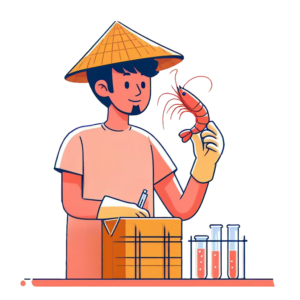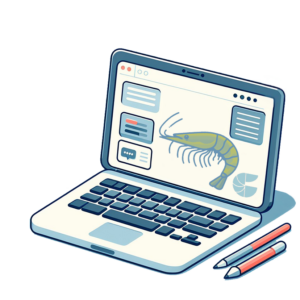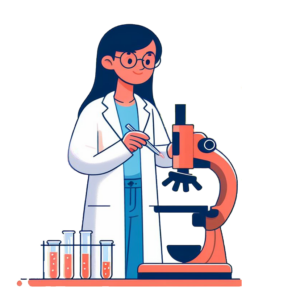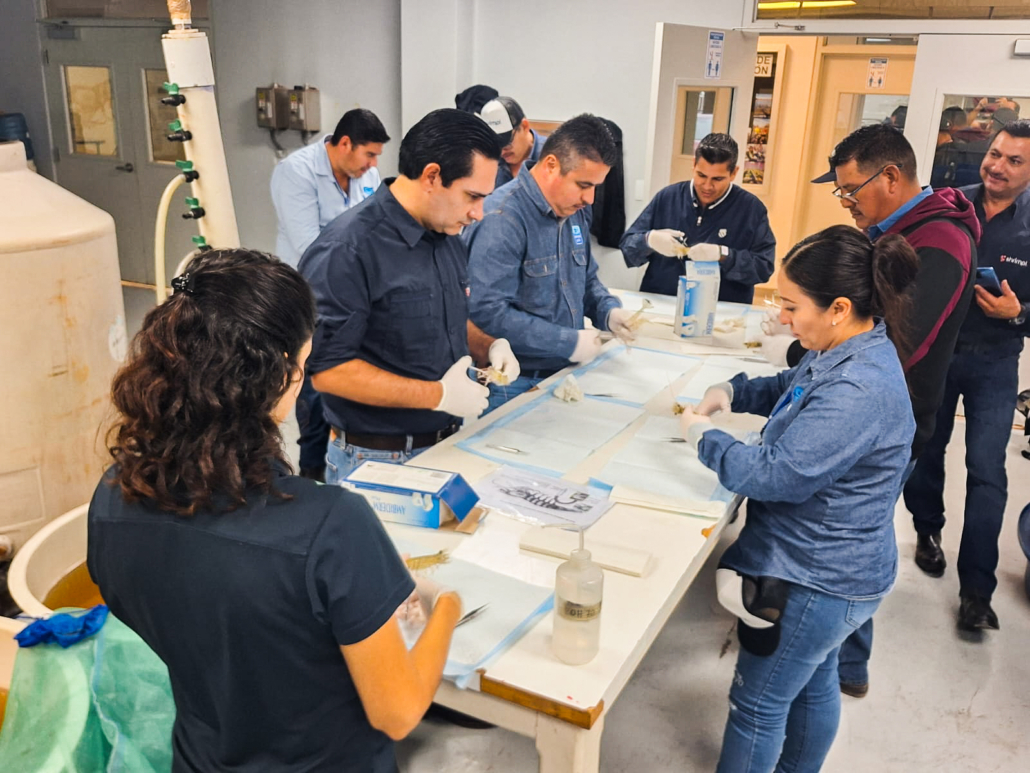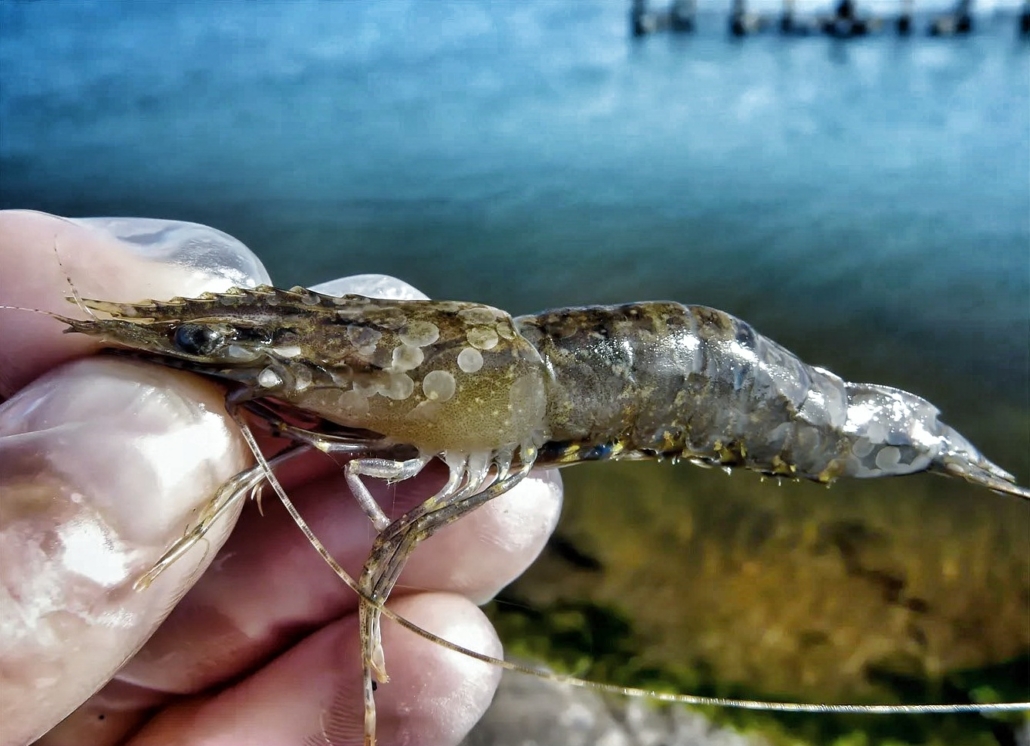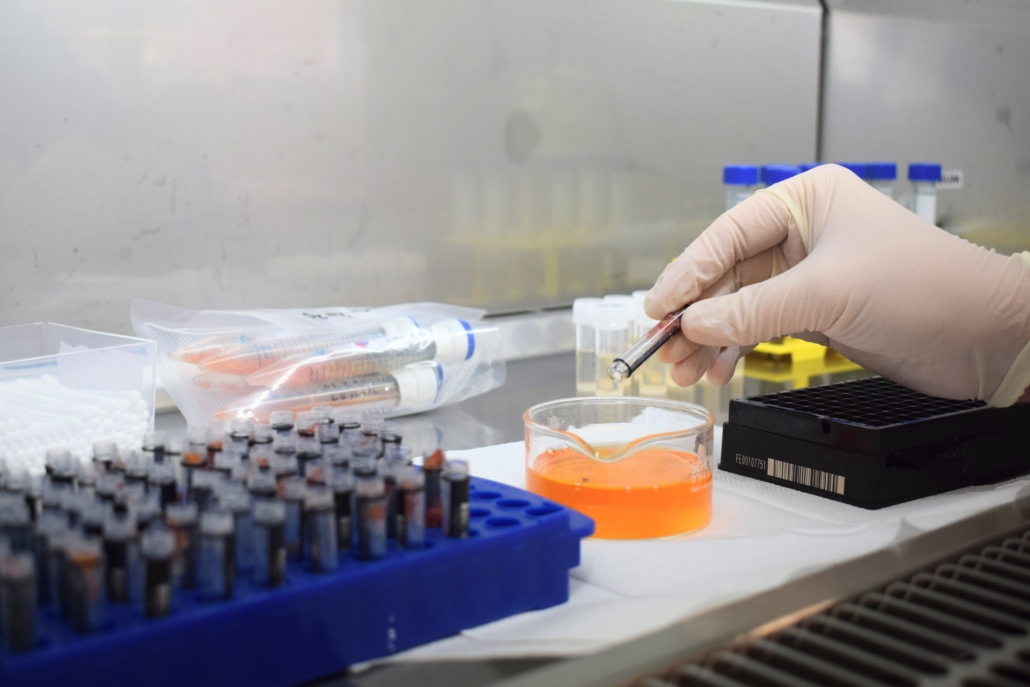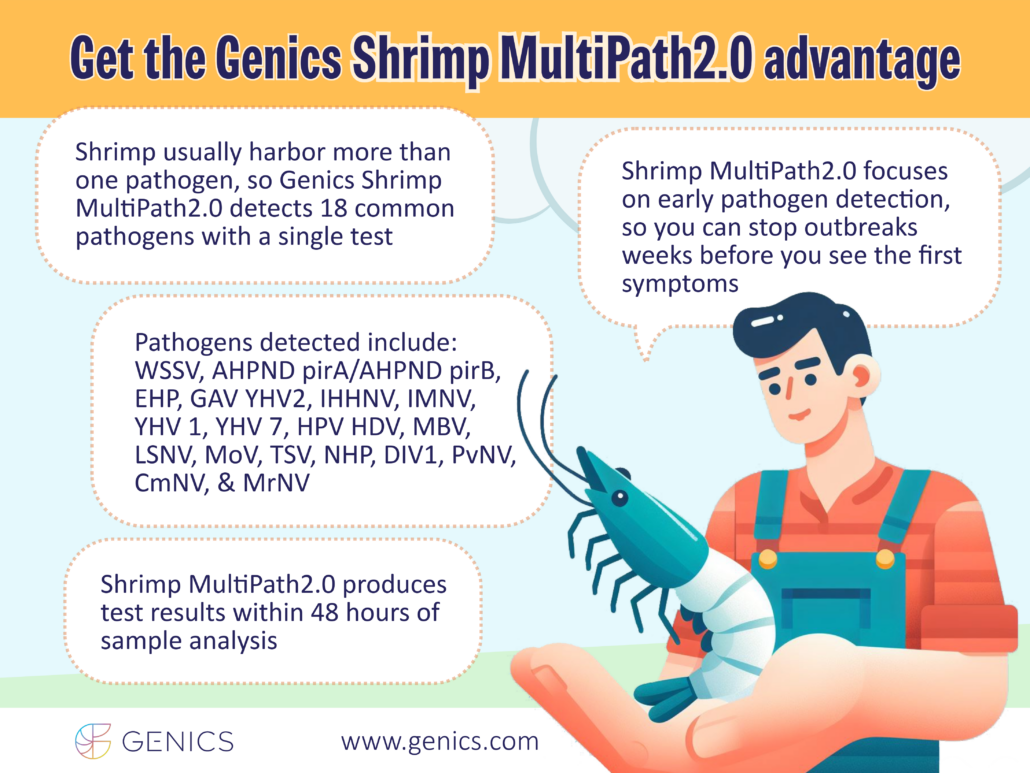Vietnamese shrimp producers can ignite exports using Genics technology – VietShrimp 2024
By Dirk Kruger
After a disappointing 2023 season, Vietnamese shrimp producers are planning for a year of growth in 2024, and Genics is committed to being part of the industry’s recovery & expansion.
Last week, I visited the 2024 VietShrimp Aquaculture conference in Ca Mau as part of the Australia–Vietnam partnership for Climate-Smart Agriculture delegation to find out what’s on Vietnamese shrimp producers’ minds and how Genics can help them achieve their goals.
Photos below and at top: while I was in Vietnam, I took the opportunity to visit Truc Anh BioTech and meet the CEO & Chairman Xuan Anh Le.
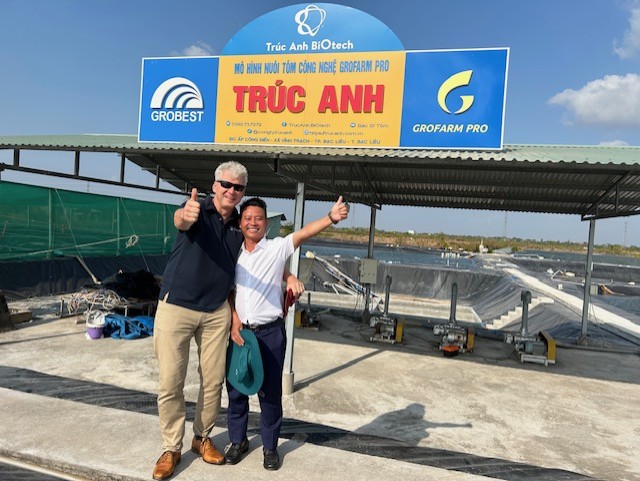
Vietnam’s new initiatives in shrimp export markets
VietShrimp is co-hosted by the Vietnam Fisheries Society (VINAFIS). Talking about the importance of Vietnam’s shrimp industry, VINAFIS Chairman Nguyen Viet Thang said that shrimp is a vital export for his country, delivering nearly US$4 billion to the economy each year. But in 2023, the sector saw an export slump of nearly 20%, caused by rapid modernization by South American and Indian producers. This hardship has prompted Vietnamese industry thought leaders to refocus on their own pathways to expansion through quality assurance and biosecurity credibility.
In line with their export resurgence goals, the VietShrimp organizers designated the key themes of this year’s conference as technological development, sustainable production, quality assurance, and farming efficiency.
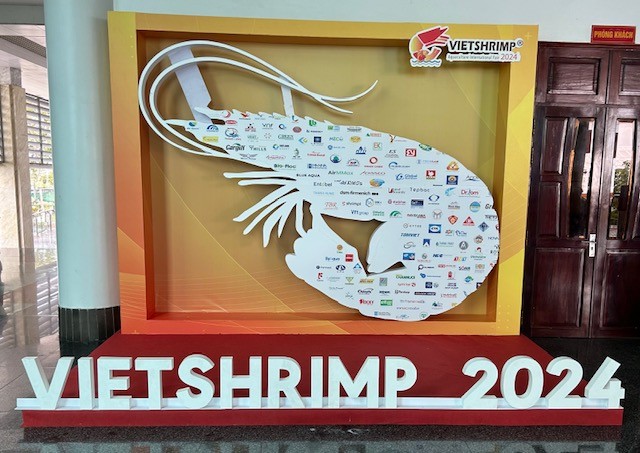
Vietnam’s shrimp farmers are targeting US$4.3 billion in exports for 2024, a goal dependent on recapturing US and Chinese customers who make up 45% of export value. Return to form in these export markets hinges on taking a competitive stance on biosecurity and quality control, which are high priorities for foreign buyers.
Speaking at the conference, Deputy Minister of Agriculture and Rural Development Phùng Đức Tiến emphasized that Vietnam’s shrimp industry must integrate smoothly with the world economy in coming years.
“We believe that VietShrimp 2024 will be a bridge between the business community, partners, and customers,” the Deputy Minister said. “It’s a forum for the shrimp industry to connect with the world, with learning experiences and techniques of advanced countries to upgrade the Vietnamese shrimp industry in the future.”
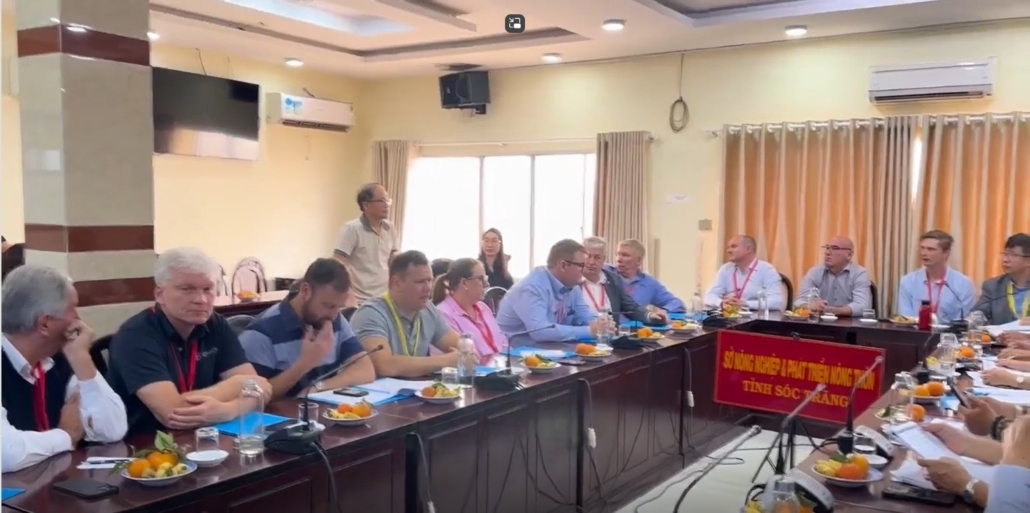
Photo above: meeting local government officials in Soc Trang Province.
As I talked to farmers and industry leaders at VietShrimp, it confirmed that the pain points for Vietnamese shrimp producers are closely tied to technology adoption.
The farmers I talked to are looking for ways to enhance efficiency by optimizing breeding programs for better yield. They also need reliable disease testing technology for very early pathogen detection to prevent catastrophic stock losses from pathogens.
I had a lot of positive interactions with shrimp producers who could see the connection between Genics technology and the need to implement reliable strategies for product improvement. Genics Comprehensive Shrimp Solutions Suite can support sustainable growth for Vietnam’s farmers, as it has in other parts of Asia and Latin America.
Genics has export growth solutions for Vietnamese shrimp producers
Genics has already demonstrated its value as a breeding and biosecurity partner for shrimp producers in Australia, South America, and Indonesia.
Indonesia’s shrimp industry has many legitimate points of comparison with its Vietnamese counterpart. Both industries are in steep technology adoption phases, and both countries’ producers want to expand their domestic potential onto the world stage.
Talking with us this year, Henry Wijaya, the chairman of Indonesian shrimp producer Prima Larvae Bali, said that Genics services have proven to be a valuable investment for his company.
“We have peace of mind, knowing that Genics is an accredited pathogen detection lab. We can also say to our customers that we have external pathogen verification by an internationally recognized provider with a great reputation,” Henry said in a recent case study interview.
That sentiment aligns with the aspirations of Vietnamese producers right now. In an increasingly competitive export market, Vietnam’s farmers need to deliver shrimp that meet the highest quality standards and are certified disease-free by reliable testing methodologies.
Genics industry-leading genetic profiling, digital phenotyping, and pathogen detection technology can give Vietnamese farmers the competitive edge they need. US and Chinese importers are looking for quality assurance standards linked to reliable, state-of-the-art technology, and Genics shrimp services meet that expectation.
I made many new connections with local producers at VietShrimp and I’m looking forward to helping them get the full export advantages of Genics partnership.
What can Genics do to help grow your farming business?

About the author:
Dirk Krueger is a business development & commercial executive with more than twenty-five years of experience in senior strategic leadership roles with global companies. As Chief Commercial Officer at Genics, Dirk works closely with agricultural producers throughout the world to help them realize their productivity goals and grow their businesses.


